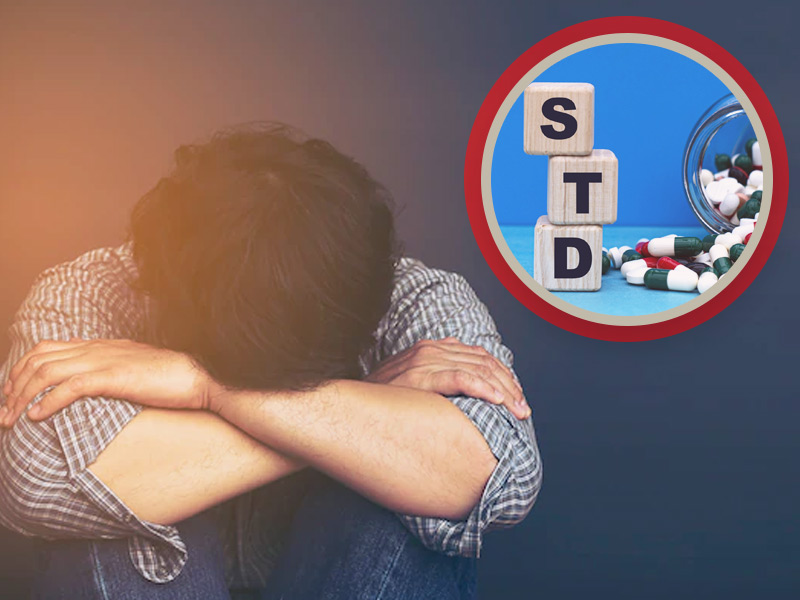
We see people discussing a lot of topics around, but as soon as one starts talking about STDs and STIs, people draw a line. Why? If you suffer from a sexually transmitted disease, you have nothing to be ashamed of. STDs are more common than you think they are. In an increasing sex-positive society, talking about STDs is still stigmatized.
Table of Content:-
Why are STDs and STIs stigmatized?
According to Dr. Suhasini Inamdar, Consultant Obstetrician & Gynaecologist, Motherhood Hospitals, Indiranagar Bangalore, “the reason why STDs and STIs receive such negative responses from society is that people judge when it comes to sex. Therefore, anyone diagnosed with an STD is shamed or in other words, considered dirty. People with STDs end up losing their partners as well.”
The stigma around sex and STDs mainly starts during adolescence when our parents, families, culture, religions etc teach us how to perceive such issues. The way such issues are portrayed by media and the lack of sex education in schools further makes it hard for people who come out to be positive about STIs. Sexual health is still not considered as important as physical and mental health.

Also Read: Sexually Active Women Can Get Bacterial Vaginosis
Why STDs and STIs should be perceived normally?
Judgements regarding STDs and STIs are irrational as these conditions should be considered and perceived as other health issues in the body. Here is what people should know about STDs:
- Many people think that the ones who contract such infections are involved with multiple partners. However, this is not true. It takes only one infected partner to transmit the infection.
- There is no link to the sexual history of the person, however, sexual behaviours like having unprotected sex are of concern.
- Generally, most STDs do not have any symptoms. The only way to know whether you are suffering from an STD or STI is by regular screening.
- However, people do not consider it as an option as they fear if they come out to be positive, they won’t be able to lie to others or be rejected by society.
- Regular testing is important as a person can spread infections to others without even knowing.
- STDs are just infections and should be considered normal. Anyone can contract STDs or STIs irrespective of age, caste, religion, gender etc.

Psychological effects of Stigma on the person
Patients suffering from STDs and STIs generally do not come out even if they are experiencing symptoms. This is because they feel shy and embarrassed about going to a healthcare provider and seeking treatment for it. The mental state of a person suffering from such infections is widely affected by how people perceive the condition. The fear and anxiety about being stigmatized always remain. Some of the STDs and STIs can be life-threatening and seeking treatment for them is necessary.
Also Read: 5 Facts All Men Should Know About Sexual Health Problems

Educating oneself and others
Proper sex education is required through conversations in media and schools. Through conversations with people with similar experiences, the issues can be normalized and help reverse the stigma. People should be more empathetic while talking about the issue, considering the mental health aspect attached to it. While efforts are being made to destigmatize STIs like HIV, other common infections should also be taken into consideration. Society needs to know that STIs and STDs do not showcase one’s character.
People who contract such infections generally feel lonely. What they are not aware of is that many people out there are suffering from these infections without even knowing. It doesn't matter whether you are rich or poor, an engineer or even a labourer, anyone can contract STDs. efforts should be made to promote the importance of screening for early diagnosis. Even though some STDs and STIs are asymptomatic, they can still cause harm to your body by making you infertile.
If you are diagnosed with an STD, have a conversation with your doctor face-to-face instead of reading about it over the internet. Know what treatment options are available to you and how the infection can affect your body. Sexual health is a topic that should be discussed among people to adopt healthy behaviors and reduce the risks of contracting STDs and STIs.
Image credits- freepik
Also watch this video
How we keep this article up to date:
We work with experts and keep a close eye on the latest in health and wellness. Whenever there is a new research or helpful information, we update our articles with accurate and useful advice.
Current Version